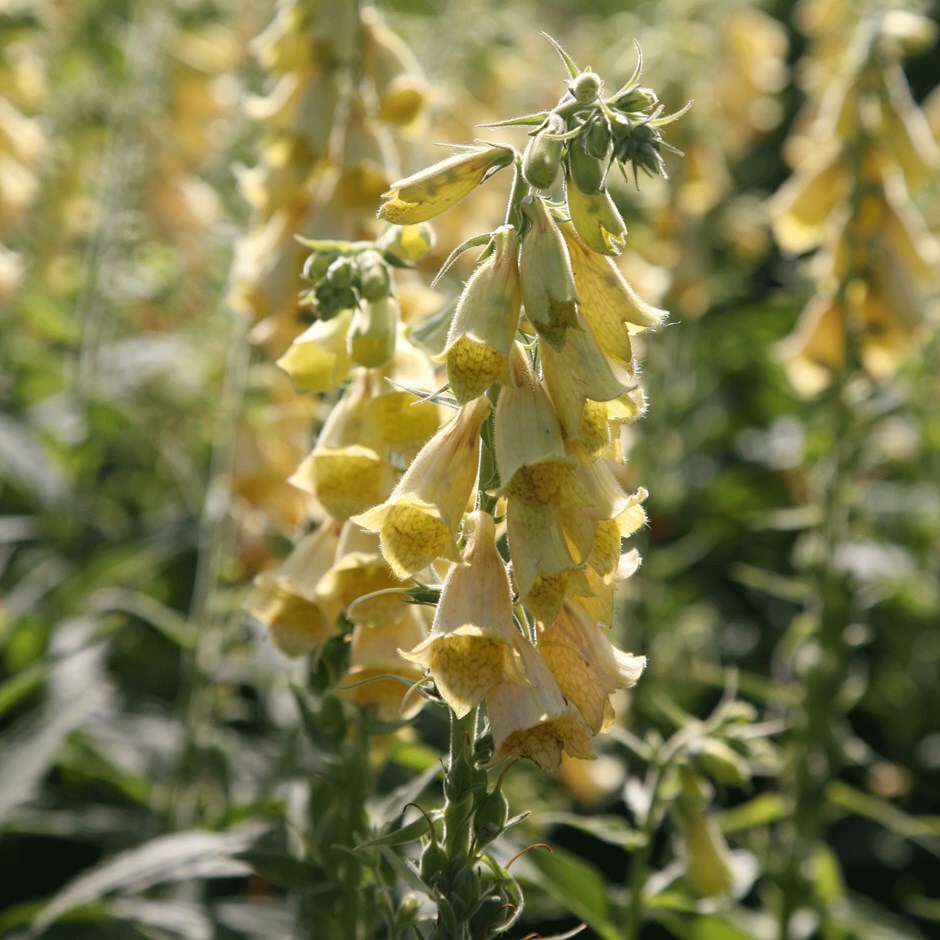Digitalis grandiflora
yellow foxglove
- 9cm pot
- £8.99
- In stock (shipped within 3-5 working days)
- 3 × 9cm pots
- £19.99 £6.66 each
- In stock (shipped within 3-5 working days)
- 6 × 9cm pots
- £37.99 £6.33 each
- In stock (shipped within 3-5 working days)
Delivery options
- Standard £5.99
- Position: full sun to partial shade
- Soil: moderately fertile, moist, well-drained soil
- Rate of growth: fast
- Flowering period: June to July
- Hardiness: fully hardy
Acting as a magnet to bees, the yellow, trumpet-shaped flowers that appear on the upright flowerspikes from early summer, add vertical movement to the planting scheme. Ideally suited to the woodland edge, they also make wonderful additions to the herbaceous border.
Please keep in mind that while these plants are short-lived perennials, they will produce plenty of new side shoots, and even self-seed freely.
Please keep in mind that while these plants are short-lived perennials, they will produce plenty of new side shoots, and even self-seed freely.
Plant into a well-prepared border or woodland margin with plenty of organic matter (well-rotted compost). Ensure that the soil is kept moist in summer.
After the first flowerspikes have finished flowering, cut them back to encourage sideshoots to develop, which can go on to provide a second flush of flower. Then, when the last of these have died off, cut them all down to the ground.
Apply a generous 5-7cm (2-3in) mulch of well-rotted organic matter around the plant in early spring.
These plants are mainly biennial, although they will often self-seed freely.
After the first flowerspikes have finished flowering, cut them back to encourage sideshoots to develop, which can go on to provide a second flush of flower. Then, when the last of these have died off, cut them all down to the ground.
Apply a generous 5-7cm (2-3in) mulch of well-rotted organic matter around the plant in early spring.
These plants are mainly biennial, although they will often self-seed freely.
- Humans/Pets: TOXIC if eaten




